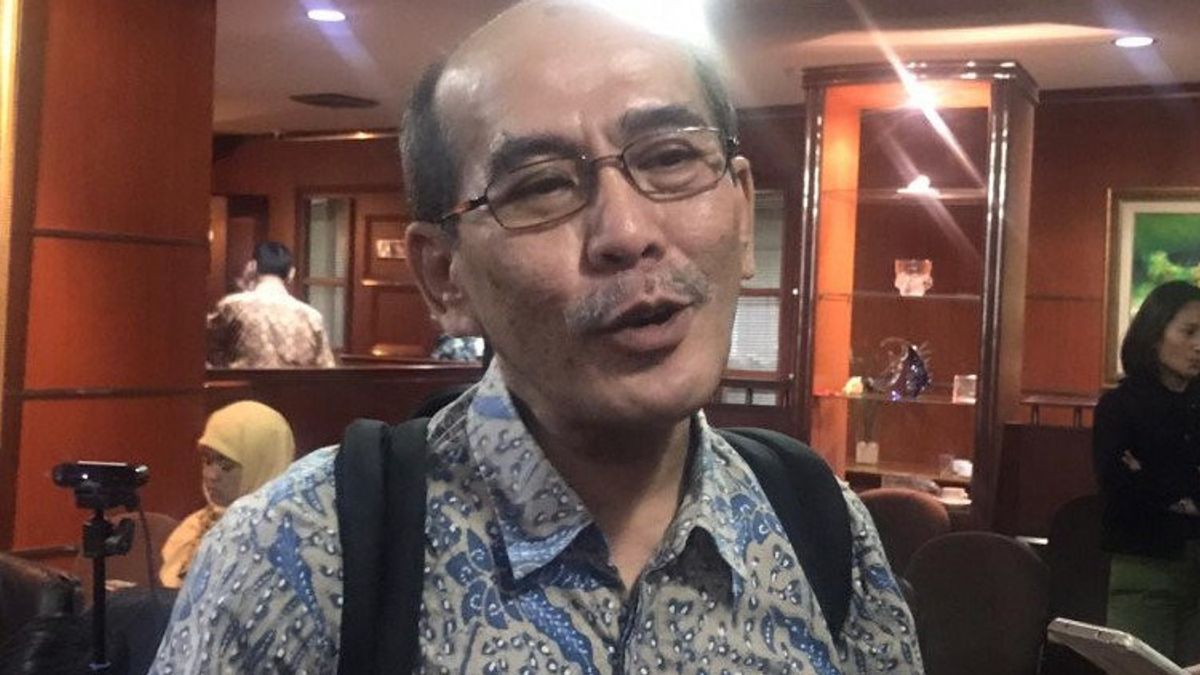JAKARTA - Senior economist Faisal Basri said that a high increase in excise rates is not the only solution to reduce cigarette consumption. Because, he said, this high portion of excise tax does not necessarily result in cigarettes being out of reach for the public.
"So the most effective element is price. As long as the price is still relatively cheap. Moreover, compared to other countries, cigarette consumption will increase," he said in a virtual discussion, Monday, May 31.
Faisal gave an example, there are two brands of cigarettes X and Y subject to the same excise duty, namely Rp1,000. Meanwhile, the selling price per stick for brand X is Rp. 1,300, while for brand Y is Rp. 2,000. The excise portion for the X brand is 77 percent. While the Y brand is 50 percent.
"So the excise portion of X is high. So it is considered more effective to reduce the number of smokers or cigarette consumption, when in fact it is more affordable because the selling price per cigarette is Rp. 1,300. Even though the tax for Y cigarettes is only 50 percent, the price per stick is Rp. 2,000. So more unaffordable by brand Y cigarettes," he said.
Faisal said the price of cigarettes in Indonesia is very cheap. Even to get it is very easy. Moreover, coupled with cigarette advertisements that are very intense, especially in outdoor media and television.
Furthermore, Faisal said many tactics were carried out by the cigarette industry. One of them is the illusion of price to create an image that prices are not going up. For example, by reducing the number of sticks per pack. Thus, the selling price per pack fell and it continued.
"The ones who are most aggressive in doing this are Djarum, for example, if we watch football it keeps coming out. So the price goes down even though the price per stick goes up. Because the number of sticks is reduced, so the price per pack goes down," he said.
"We must not be fixated on the excise duty that keeps increasing. But the selling price of cigarettes must be increased continuously so that it becomes increasingly difficult to afford it," he continued.
Faisal reminded that death from smoking occupies the second position in the world, after high blood pressure. Then diabetes, pollution and obesity. According to him, if the government wants to encourage Indonesian people to have high productivity, then at least these 5 main diseases will be a priority to be treated.
"It's very sad if we invest in human resources (HR), but if the human resources die quickly, it will be in vain. That was a perspective, if we are not controlled and then he causes death. So that investment in human resources becomes in vain," he explained.
In addition, said Faisal, the third fact is that excise revenues have never been affected by any crisis. Even though state revenues have fallen, the excise tax continues to rise. Even in 2020, in the midst of the pandemic era, the income from tobacco excise is still rising.
"We see 164.9 to 170. And this year it is targeted to increase again. So in the midst of declining state revenues, tax revenues have also decreased, while excise taxes have increased. So indirectly tobacco excise is the mainstay of state revenue. makes the government nervous. Because it has not found a source of income that can replace it," he said.
For your information, the realization of tobacco excise tax revenues in 2020 reached 103.21 percent of the target of Presidential Regulation number 72 in 2020. When compared to 2019, this figure rose 3.26 percent.
"Tobacco excise tax revenues accounted for 10.4 percent of state revenue. The highest in history? If you add PPh and VAT cigarettes, the contribution is even greater. Tobacco excise revenues account for 96.55 percent of total excise revenues," said Faisal.
The English, Chinese, Japanese, Arabic, and French versions are automatically generated by the AI. So there may still be inaccuracies in translating, please always see Indonesian as our main language. (system supported by DigitalSiber.id)













